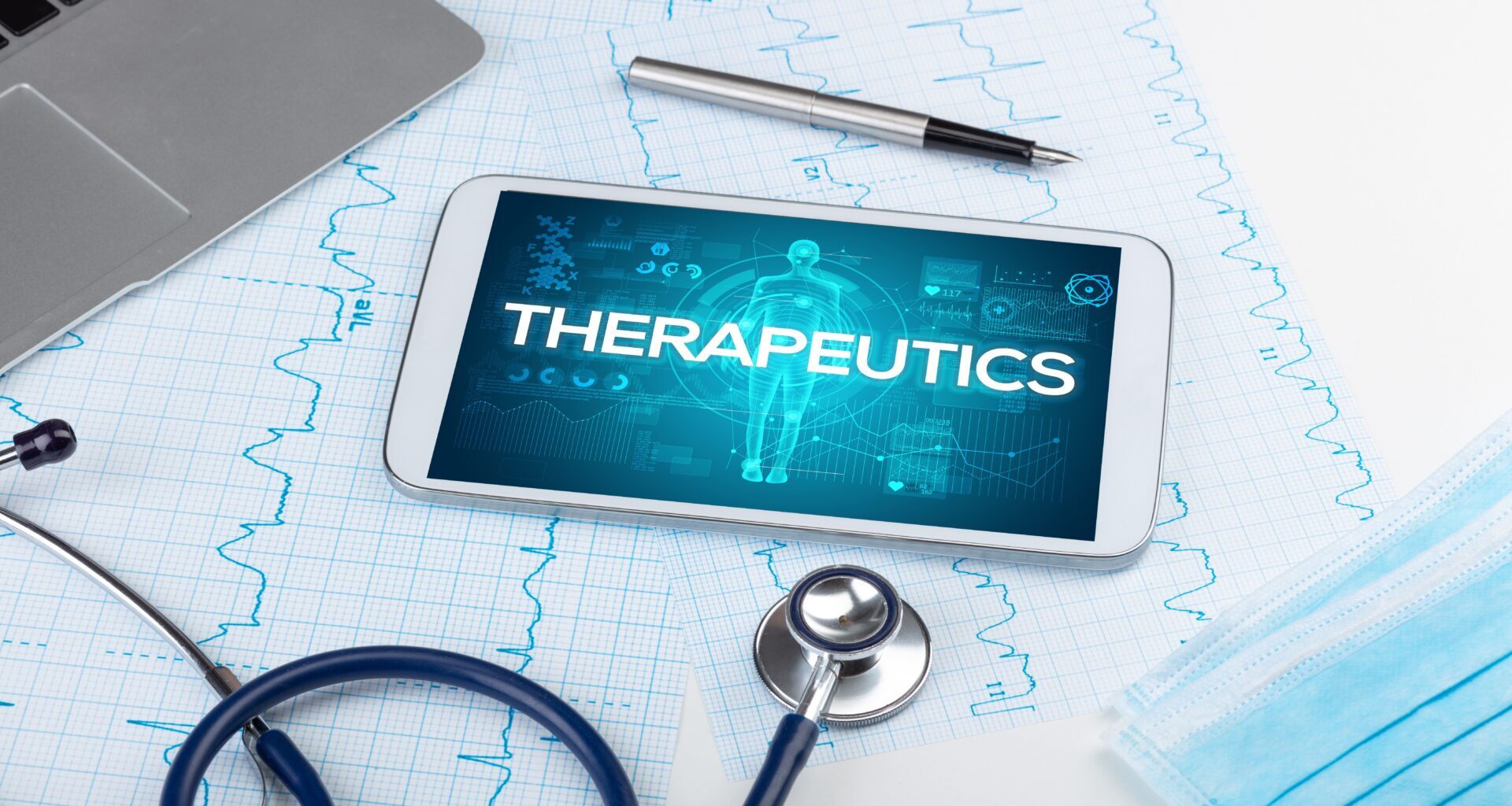Chronic diseases are increasingly becoming a burden around the globe, and many of these lifestyle-related conditions are irreversible. As a result, they require lifelong medication use to be managed effectively. However, patients often struggle to follow prescribed medications and lifestyle changes to take care of their health conditions. In certain situations, healthcare providers may have restricted means to supervise whether patients are taking their medication as prescribed. This ever-increasing disease burden necessitates the use of comprehensive digital health management solutions.
In the ever-changing healthcare landscape, digital therapeutics (DTx) have gained increasing attention. They can contain multiple interventions throughout the patient journey, such as monitoring, medical adherence, behavioral engagement, personalized coaching, and real-time custom health recommendations. This post highlights the fundamentals of digital therapeutics.
What is Digital Therapeutics (DTx)?
Digital therapeutics, often called DTx, are evidence-based digital health solutions that have acquired regulatory approval from governing bodies like the FDA. These solutions extend beyond simple health trackers and information apps. DTx applications leverage various techniques, including gamification, biofeedback, and cognitive behavioral therapy modules, to directly provide clinically validated interventions to patients.
This solution empowers patients to manage their health actively, build better self-management, and improve long-term health outcomes.
What Are The Benefits of Digital Therapeutics?
In a world where digital transformation is heralding new-age wellness, digital health solutionslike digital therapeutics apps are a revolutionary approach to healthcare that has emerged in recent times. Beyond traditional treatment methods, DTx apps use scientifically backed technologies to closely monitor treatment progress and patient behavior changes.
For Patients:
Improved Convenience And Accessibility: DTx eliminates geographical barriers and allows on-demand care, delivering access to treatment anytime, anywhere.
Enhanced Self-Management: Patients gain greater control over their health by proactively being involved in treatment plans and monitoring improvement through user-friendly interfaces.
Increased Engagement: Gamification elements and interactive features can improve patient engagement and adherence to treatment protocols.
Personalized Care: Certain DTx applications can tailor interventions based on individual patient data, offering a more tailored approach to treatment.
For Healthcare Providers:
Improved Efficiency: This digital health solution can supplement traditional in-person consultations, allowing care providers to dedicate more time to complex cases and patient interaction.
Enhanced Patient Monitoring: Continuous data collection provided by DTx applications can offer valuable insights into patient health trends, leading to more informed treatment decisions.
Remote Care Management: DTx can enable remote monitoring and intervention for certain chronic conditions, enhancing care delivery and reducing hospital readmission rates.
For Payers:
Reduced Healthcare Costs: Effective DTx solutions can lower healthcare costs by promoting preventive care, chronic disease management, and medication adherence.
Improved Health Outcomes: By empowering patients with self-management tools, DTx can enhance health outcomes, potentially reducing healthcare resource utilization.
Value-Based Care: This digital health solution aligns with the shift towards value-based care models by focusing on preventive and population health management, leading to cost-effective care delivery.
Which Health Conditions Are Targeted By DTx Apps?
The potential applications of DTx are vast and constantly evolving. Here are some key areas where DTx is making significant strides:
Mental Health: One in every eight adults in the globe suffers from a mental disorder. DTx provides mental health digital therapeutics such as:
- Cognitive Behavioral Therapy (CBT) Apps: These applications deliver interactive modules and exercises based on CBT principles to equip users with coping mechanisms for anxiety and depression.
- Mindfulness and Meditation Training: DTx apps can guide users through mindfulness exercises and meditation techniques, facilitating stress management and emotional well-being.
- Sleep Management Programs: These applications suggest personalized sleep hygiene guidance and monitoring tools to help users improve sleep quality.
Cardiovascular Ailments: This digital health solution holds immense promise in managing cardiovascular health:
- Blood Pressure Monitoring Apps: These applications connect with Bluetooth-enabled blood pressure cuffs, facilitating convenient self-monitoring and data collection.
- Cardiac Rehabilitation Programs: By tracking a cardiac event, DTx apps can provide personalized exercise routines and educational modules to promote cardiac rehabilitation.
- Lifestyle Management Tools: DTx applications can help patients track dietary habits, physical activity levels, and medication adherence, supporting a heart-healthy lifestyle.
Gastrointestinal Disorders: DTx offers innovative solutions for managing a variety of gastrointestinal (GI) conditions:
- Symptom Tracking Apps: These applications allow patients with Irritable Bowel Syndrome (IBS) to track symptoms, triggers, and dietary habits for improved self-management.
- Dietary and Nutritional Guidance: DTx apps can provide personalized meal plans and nutritional information to support gut health for individuals with certain GI conditions.
Mind-Body Connection Programs for Gastrointestinal Disorders: Building on the previous section, some DTx solutions for GI disorders focus on the mind-body connection:
- Stress Management Techniques: These applications offer relaxation exercises and mindfulness training to help manage stress, which can exacerbate GI issues.
- Cognitive Behavioral Therapy (CBT) for GI Conditions: DTx apps can deliver CBT modules designed explicitly for GI disorders, helping patients manage stress-related symptoms and improve overall well-being.
Substance Use: DTx is emerging as a valuable instrument in the battle against substance use disorders:
- Relapse Prevention Programs: These applications can offer support networks, motivational messaging, and cognitive behavioral therapy modules to aid individuals in maintaining sobriety.
- Craving Management Techniques: DTx apps can offer mindfulness exercises, distraction techniques, and real-time support tools to help users manage cravings and prevent relapse.
- Medication Adherence Support: DTx applications can send medication reminders, track adherence, and offer educational modules to support medication-assisted treatment plans.
What Are The Barriers That Hinder The Large-Scale Adoption Of Dtx Solutions?
Despite the potential benefits, several challenges hinder widespread DTx adoption, such as:
- Reimbursement Concerns: Clear and consistent reimbursement guidelines are required to increase the accessibility of DTx applications for Medicare and private insurers for chronic care management.
- Data Security And Privacy: Robust data security measures are instrumental to ensuring patient privacy and trust in this digital health solution.
- Integration With Existing Healthcare Systems: Seamless integration of DTx data with electronic health records is necessary to provide healthcare providers with a holistic view of patient health.
- Digital Divide: It is necessary to address the digital divide and provide technical support to ensure equitable access to DTx for all patient populations.
What Does The Future Of Digital Therapeutics Look Like?
The future of DTx is brimming with promise. Researchers are constantly developing new and innovative applications for various health conditions as technology advances. Additionally, advancements in areas like artificial intelligence (AI) and machine learning hold the potential to personalize DTx interventions further, leading to more effective and targeted treatment plans.
However, overcoming the challenges mentioned above remains crucial. Collaboration between healthcare stakeholders, including regulatory bodies, healthcare providers, technology companies, and patient advocacy groups, is essential to ensure the responsible and widespread adoption of this digital health solution.
By harnessing the power of digital technology, DTx has the potential to revolutionize healthcare delivery, empower patients, and ultimately lead to a healthier future for all.













